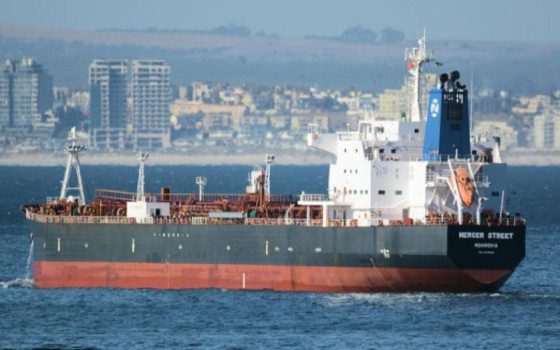
To compensate for the decline in energy imports from Russia, the European Union relied on 5 countries, most notably Saudi Arabia, Algeria and Qatar

- Europe and Arabs
- Wednesday , 5 July 2023 15:37 PM GMT
Brussels: Europe and the Arabs
The European Union relied on several countries to compensate for the decline in supplies of energy sources from Russia after the war on Ukraine, and at the forefront of these countries are Saudi Arabia, Qatar and Algeria, as well as Norway and the United States, as well as Britain at times
Between 2021 and 2022, there has been a significant increase in energy imports in the EU in terms of monthly average value (+121%) and quantity (+9%). However, the first quarter of 2023 recorded a decrease in both indicators. Compared to the first quarter of 2022, there was a decrease of 9.2% in value and a decrease of 3.0% in quantity. According to the European Statistical Office "Eurostat", which also said that after the Russian invasion of Ukraine, the European Union applied several packages of sanctions, which directly and indirectly affected oil and natural gas trade, and are now visible in a major shift of suppliers of energy products. Thus, Russia's share in EU imports of coal, natural gas and petroleum oils has been steadily decreasing since the second quarter of 2022.
With regard to petroleum oil, the EU ban on seaborne imports of Russian crude oil entered into force on December 5, 2022, followed by a ban on refined petroleum products from February 5, 2023. The impact of these measures was evident in the first quarter of 2023. If the Russia in the first quarter of 2022 is the largest supplier of petroleum oils with a share of 26.0%, in the first quarter of 2023 Russia's share was equal to only 3.2%, a decrease of 22.8 percentage points (pp), compared to the first quarter of 2022.
In contrast, Norway (+3.8 pages), Saudi Arabia (+3.4 pages) and the United States (+2.7 pages) saw their shares rise in the same period.
The situation was similar to natural gas in the gaseous state, with EU countries turning to other sources of supply. In the first quarter of 2022, Russia was the largest supplier to the European Union with a share of 38.8%, followed by Norway (38.1%), but in the first quarter of 2023, Russia's share decreased by 21.4 points, while Norway's share decreased. (+8.0 pages), Algeria (+7.4 pages) and the United Kingdom (+4.0 pages) increased.
For LNG, Russia (18.1%) was the second largest supplier to the European Union, after the United States (48.6%), in the first quarter of 2022. Fast forward to the first quarter of 2023, Russia's share decreased by 4.9 pages. Meanwhile, Shares of Norway rose (+6.5 pages), Qatar and Algeria (both +2.4 pages) while the share of the United States declined by 8.4 pages.












No Comments Found